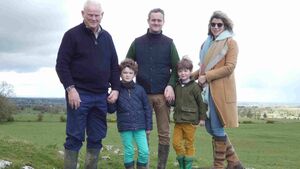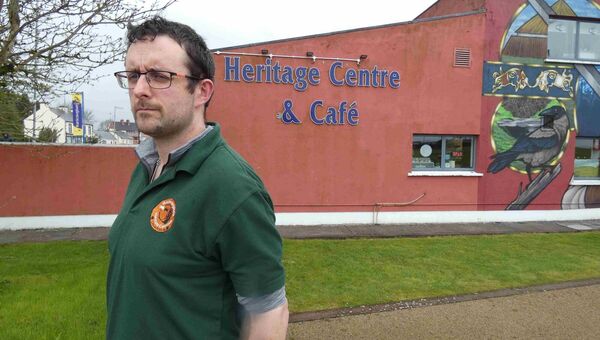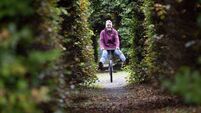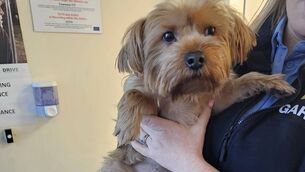Roscommon at the forefront in final episode of TG4 series about Irish surnames

The O'Conor family at the inauguration mound of the O'Conor Kings of Connacht.
The final episode of the TG4 series Sloinne visits County Roscommon this evening, Sunday, with a journey back in time to trace the history of the O’Connor surname.
Sloinne series delves into the fascinating stories behind Ireland's most common surnames, bringing history to life in a way that's accessible and enjoyable for everyone. The first series showcases surnames like Ó Flaithearta, Ó Murchú, Ó Ceallaigh, Ó Súilleabháin, Ó Domhnaill, Seoighe, and Ó Conchubhair.
Each episode features a special guest exploring their family surname, taking us on a journey back in time. We'll visit ancient strongholds tied to these names, reliving epic battles and feuds over land and possessions. From the famous to the infamous, modern-day stories of surname bearers add a personal touch, highlighting our enduring connection to our ancestors.

In this Sunday’s final episode of Sloinne, today Sunday, March 3rd the programme follows Frankie Ó Conchubhair (Ros a mhíl, Galway) as he goes on a journey back in time to trace the history of his O’Connor surname.
He finds out about the different variations and spellings of the O’Connor surname when he meets with Dr. Kieran O’Conor (lecturer at University College Galway) and discusses the knowledge of owned land in Barnabelonging to his O’Connor family with series geneologist Paul MacCotter.
Frankie’s journey also takes him to County Roscommon. There, he visits the picture-perfect Clonalis House, Castlerea where Pyers O’Conor Nash shows him around The O’Conor Don Estate, that was passed down through generations and maintained by his family. He also meets historian Rena Burke at Felim O’Connor’s tomb in the Dominican Priory of St.Mary and Dr. Daniel Curley (historian and archaeologist) at the Rathcroghan Visitor Centre, Tulsk.
The episode features other conversations with harpist Úna Ní Fhlannagáin (Galway), poet Micheál Ó hAodha (Galway) and historian Sharon Slater (Limerick).






